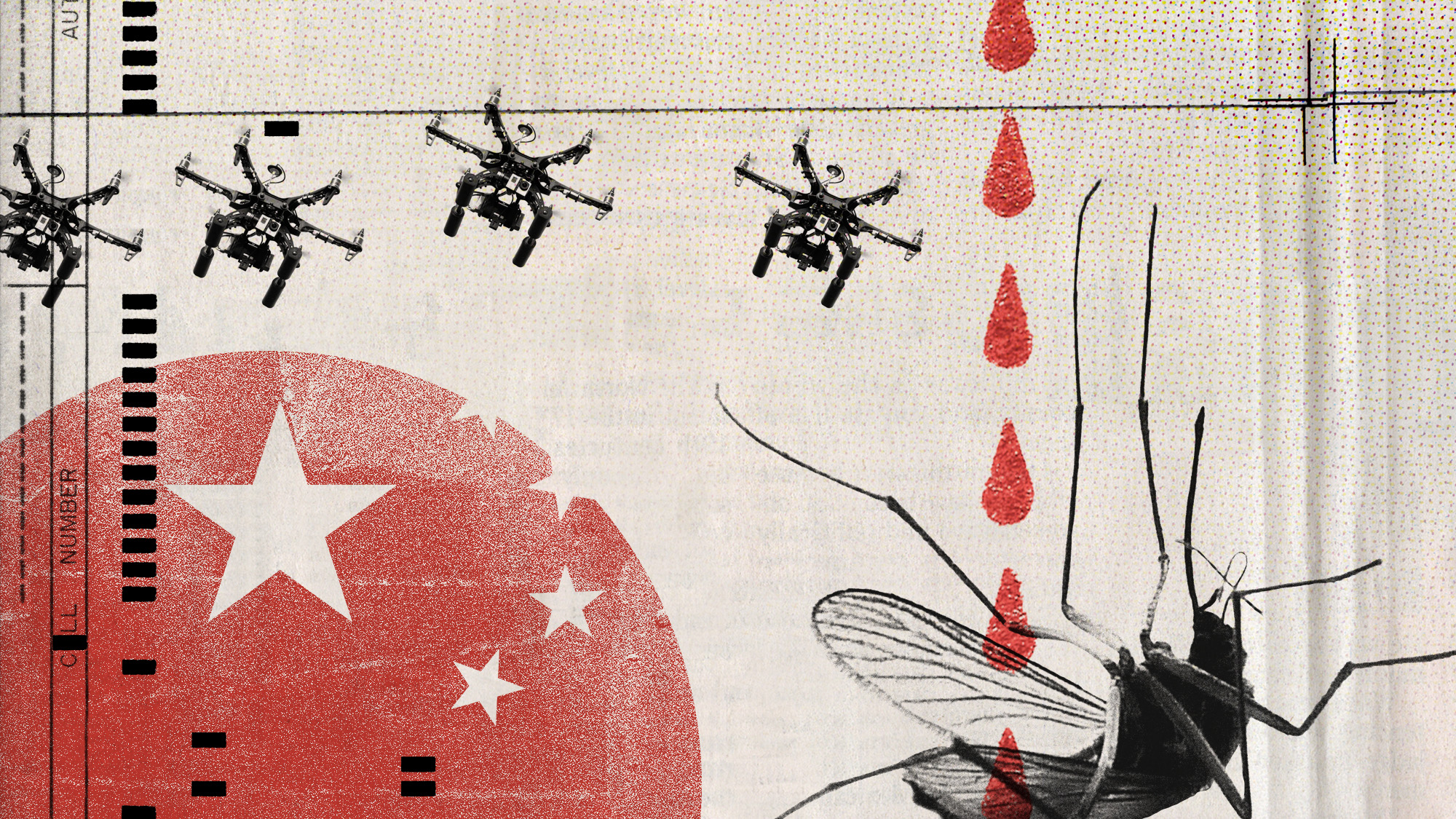Evolutionary virologist once open to Wuhan lab leak theory now says COVID spread from animal market


A free daily email with the biggest news stories of the day – and the best features from TheWeek.com
You are now subscribed
Your newsletter sign-up was successful
Michael Worobey, an evolutionary biologist who signed a high-profile letter in May urging further study of the theory that the COVID-19 coronavirus accidently leaked from the Wuhan Institute of Virology, reported in the journal Science on Thursday that new research strongly suggests the new virus spread to humans from animals at the Huanan Seafood Market, several miles from the lab. His reconstruction of the early days of the pandemic adds to mounting evidence that the coronavirus originated in bats and infected humans through an intermediary mammal, The Wall Street Journal reports.
Worobey, a leading expert in tracking the evolution of viruses, pored through all available records and found that 10 of 19 early COVID-19 patients worked at or had visited the Huanan market, around the area where raccoon dogs were slaughtered. His research determined that a World Health Organization report incorrectly identified a 41-year-old accountant who had not been near the market as the earliest known case. Instead, the first confirmed patients was a female seafood vendor who became symptomatic on Dec. 11.
"In this city of 11 million people, half of the early cases are linked to a place that's the size of a soccer field," Worobey said. "It becomes very difficult to explain that pattern if the outbreak didn't start at the market." He reiterated to The Washington Post that "it becomes almost impossible to explain that pattern if that epidemic didn't start there."
The Week
Escape your echo chamber. Get the facts behind the news, plus analysis from multiple perspectives.

Sign up for The Week's Free Newsletters
From our morning news briefing to a weekly Good News Newsletter, get the best of The Week delivered directly to your inbox.
From our morning news briefing to a weekly Good News Newsletter, get the best of The Week delivered directly to your inbox.
Chinese officials have said the Huanan market wasn't the source of the pandemic. "The market was quickly closed, the animals culled before any were screened for SARS-CoV-2, and everything cleaned and sanitized soon after the outbreak began," the Post reports. "Still, a subsequent investigation showed that traces of the virus were found on surfaces in the market, including drains, particularly in the area where vendors sold animals."
Worobey's reconstruction of the pandemic's origin doesn't conclusively prove nature over lab leak, and some virologists said that given China's reticence to share information, that debate may never be settled. "He has done an excellent job of reconstructing what he can from the available data, and it's as reasonable a hypothesis as any," Columbia University virologist W. Ian Lipkin told The New York Times. "But I don't think we're ever going to know what's going on, because it's two years ago and it's still murky."
A free daily email with the biggest news stories of the day – and the best features from TheWeek.com
Peter has worked as a news and culture writer and editor at The Week since the site's launch in 2008. He covers politics, world affairs, religion and cultural currents. His journalism career began as a copy editor at a financial newswire and has included editorial positions at The New York Times Magazine, Facts on File, and Oregon State University.
-
 Why are election experts taking Trump’s midterm threats seriously?
Why are election experts taking Trump’s midterm threats seriously?IN THE SPOTLIGHT As the president muses about polling place deployments and a centralized electoral system aimed at one-party control, lawmakers are taking this administration at its word
-
 ‘Restaurateurs have become millionaires’
‘Restaurateurs have become millionaires’Instant Opinion Opinion, comment and editorials of the day
-
 Earth is rapidly approaching a ‘hothouse’ trajectory of warming
Earth is rapidly approaching a ‘hothouse’ trajectory of warmingThe explainer It may become impossible to fix
-
 A Nipah virus outbreak in India has brought back Covid-era surveillance
A Nipah virus outbreak in India has brought back Covid-era surveillanceUnder the radar The disease can spread through animals and humans
-
 Trump HHS slashes advised child vaccinations
Trump HHS slashes advised child vaccinationsSpeed Read In a widely condemned move, the CDC will now recommend that children get vaccinated against 11 communicable diseases, not 17
-
 Covid-19 mRNA vaccines could help fight cancer
Covid-19 mRNA vaccines could help fight cancerUnder the radar They boost the immune system
-
 FDA OKs generic abortion pill, riling the right
FDA OKs generic abortion pill, riling the rightSpeed Read The drug in question is a generic version of mifepristone, used to carry out two-thirds of US abortions
-
 The new Stratus Covid strain – and why it’s on the rise
The new Stratus Covid strain – and why it’s on the riseThe Explainer ‘No evidence’ new variant is more dangerous or that vaccines won’t work against it, say UK health experts
-
 RFK Jr. vaccine panel advises restricting MMRV shot
RFK Jr. vaccine panel advises restricting MMRV shotSpeed Read The committee voted to restrict access to a childhood vaccine against chickenpox
-
 Texas declares end to measles outbreak
Texas declares end to measles outbreakSpeed Read The vaccine-preventable disease is still spreading in neighboring states, Mexico and Canada
-
 How China is battling the chikungunya virus
How China is battling the chikungunya virusUnder The Radar Thousands of cases of the debilitating disease have been found in the country
